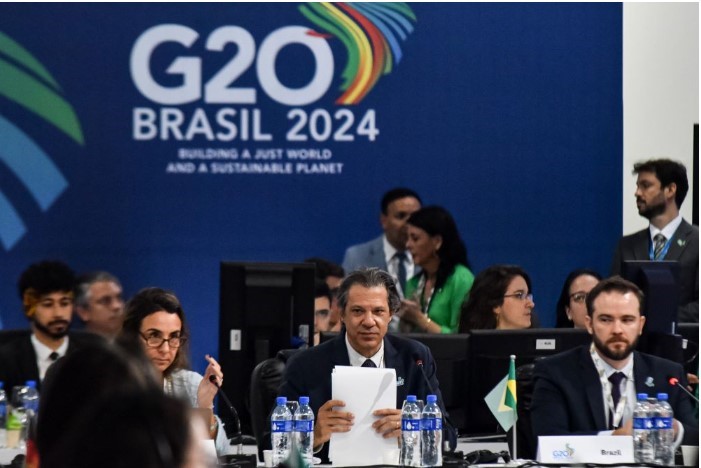
Advocating for a Global Wealth Tax to Fund a Just Green Transition
This week, as G20 finance ministers gather in Rio de Janeiro, Brazil and France have a pivotal opportunity to champion the implementation of a global wealth tax. This tax could potentially raise over $680 billion annually to combat poverty and address the climate crisis. Both nations have been outspoken proponents of taxing the ultra-wealthy to fund international development and climate initiatives.
In April, Brazilian Finance Minister Fernando Haddad and French Finance Minister Bruno Le Maire announced their intention to impose a minimum annual tax of two percent on the wealth of billionaires. This proposal has garnered support from ministers in Germany, South Africa, and Spain. Brazil, as the current G20 host, commissioned an investigation into the feasibility of a global wealth tax. The findings, published by French economist Gabriel Zucman in June, have further energized efforts to bridge the funding gap for climate and development.
Zucman's research indicates that a global wealth tax on billionaires and individuals with assets exceeding $100 million could be successfully enforced even if not all countries adopt it. Public support for this measure is strong, with over two-thirds of people across 17 G20 countries in favor of higher taxes on the super-rich to fund significant economic and lifestyle improvements.
Ensuring that billionaires are properly taxed could deliver substantial benefits, addressing systemic injustices and inequality exacerbated by the climate crisis and poverty. An ambitious global wealth tax, alongside higher and permanent taxes on oil corporations and extraction activities, could generate hundreds of billions of dollars annually. This revenue could fund renewable energy projects, heat pump and insulation programs, new public transport links, and future-proof jobs, helping communities thrive.
Additionally, such a tax would fulfill over a decade of unkept promises by G20 states, ensuring that the wealthiest nations have sufficient funds to support those suffering from climate impacts. This includes aiding the poorest communities in preparing for and recovering from natural disasters like wildfires, flooding, and sea level rise.
A global wealth tax is a moral imperative. By adopting a fairer taxation system, the G20 could expedite a just transition to a low-carbon economy, significantly reducing carbon emissions and improving living standards and energy access. This would also address historical injustices, empowering communities in Latin America, Africa, Asia, and the Pacific that continue to suffer from the legacy of colonialism and extractive profiteering.
For this vision to be realized, France and other wealthy G20 nations, like Germany and the UK, must acknowledge their historical responsibility for exploiting fossil fuels in economically poorer countries now bearing the brunt of climate change. The French government, in particular, must present concrete plans to redirect its wealth and tax its billionaires toward a sustainable, renewable energy-powered future.
Brazil and France must seize this moment to garner support for the global wealth tax proposal at the G20 meeting. Both countries need to build trust and political will for this crucial initiative. However, this will be challenging if their domestic policies contradict their international stance. Brazil's push for new oil projects and France's recent budget cuts for environmental and energy transition programs highlight the need for alignment between national and international commitments.
Ministers Haddad and Le Maire must rally their G20 counterparts around the wealth tax proposal, sending a strong signal to heads of state and governments to take concrete action when they meet in November. The stakes are high: global inequality means nearly one in eleven people live below the poverty line, and this year is likely to set new records for climate impacts. Mobilizing vast amounts of finance to scale up renewable energy is critical, and billionaires and multi-millionaires must be compelled to contribute.
A successful global wealth tax could significantly advance efforts toward a sustainable and equitable future. The world is watching, and the potential impact is immense.